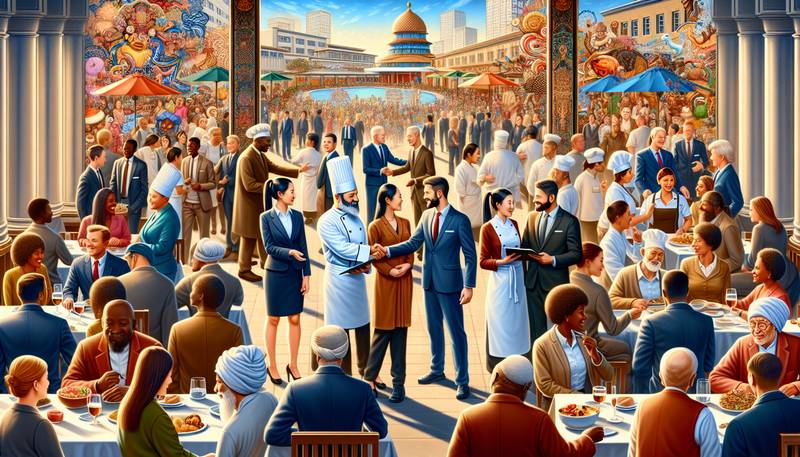Cultural Sensitivity Training in the Hotel Industry

Why We Need to Press Pause on Cultural Faux PasEvery time someone checks into a hotel, there’s an unspoken agreement: you might not know it, but you’re about to enter a vibrant microcosm of diverse cultures and backgrounds. It’s like a box of chocolates, but instead of a delightful surprise, you might be greeted with a double helping of awkwardness if you're not careful. Navigating cultural differences in the hotel industry can sometimes feel like wandering through a minefield with a blindfold on, and that's where training comes in.Cultural sensitivity training is to the hotel industry what a GPS is to a lost tourist. It helps employees steer clear of potential pitfalls and ensures guests feel welcome, appreciated, and decidedly unperturbed. After all, no one wants to be that guest who orders a 'soggy sandwich' in a fine dining establishment because they mistook 'à la carte' for a type of pastry.What Does Cultural Sensitivity Training Look Like?Imagine a workshop where hotel staff are encouraged—nay, required—to don their thinking caps and embrace role-playing exercises. It’s a bit like a modern-day Shakespearean play, but instead of tragic love stories, the plot revolves around the delicate art of communicating without stepping on anyone’s cultural toes.Topics usually covered in these training sessions include:- Understanding cultural norms and practices
- Effective communication techniques
- Active listening skills
- How to graciously accept feedback (even if it feels like a slap with a wet noodle)
- Customizing guest experiences based on cultural preferences
Training could even involve some memorable scenarios. Picture this: a staff member trying to explain check-out procedures to a family from Japan, only to discover that their concept of time is as fluid as a river after a rainstorm. Being prepared allows the staff to adapt and deliver an experience that feels as smooth as the finest silk.Why It Matters: Keeping Guests Happy, One Interaction at a TimeCultural sensitivity training isn’t just a company’s way of passing the time between coffee breaks. It’s essential for creating an environment where guests feel respected and valued. When employees have the tools to engage with customers from different backgrounds, the chances of misunderstandings, awkward encounters, and potential complaints diminish significantly.Consider the potential fallout of a communication misstep: a guest requests a vegetarian meal, and instead of a delightful plate of roasted vegetables, they’re served the entire animal kingdom on a platter. That’s the kind of horror story that can lead to online reviews sharper than a chef’s knife!By fostering cultural sensitivity, hotels can enhance their reputations, boost customer loyalty, and ensure that their guests leave with happy memories, rather than horror stories. And let’s be honest—no one wants their hotel to become the punchline of a late-night talk show.Real-World Impacts: Success Stories in ActionThere are plenty of success stories emerging from the hotel industry thanks to cultural sensitivity training. In one notable case, a luxury hotel chain adopted a comprehensive program that resulted in a delightful 30% increase in positive customer feedback. Just imagine: each glowing review is like a shiny gold star awarded for exemplary service. Another example involves a mid-range hotel that learned how to cater to a variety of cultural traditions when it came to dining. They started offering more diverse menu options during breakfast hours, providing everything from dim sum to a full English breakfast. Now every morning resembles a lively international buffet, where the only dish missing is the one that didn’t make the cut because no one could pronounce its name.These stories serve as a reminder that investing in cultural sensitivity can lead to happier customers, more referrals, and perhaps even a few extra smiles all around.Wrapping It Up: No One Wants a Cultural Mix-UpCultural sensitivity training in the hotel industry serves as more than just a checkbox on a to-do list; it’s the secret ingredient to creating an inclusive environment where guests feel right at home, regardless of where home may be. Hospitality professionals equipped with cultural insight can transform a run-of-the-mill experience into something exceptional. So let's raise a glass of complimentary sparkling water (or whatever tickles your fancy) to a future filled with better service, fewer misunderstandings, and, if we’re lucky, a few less soggy sandwiches on the menu. Cheers to that!
|
|







